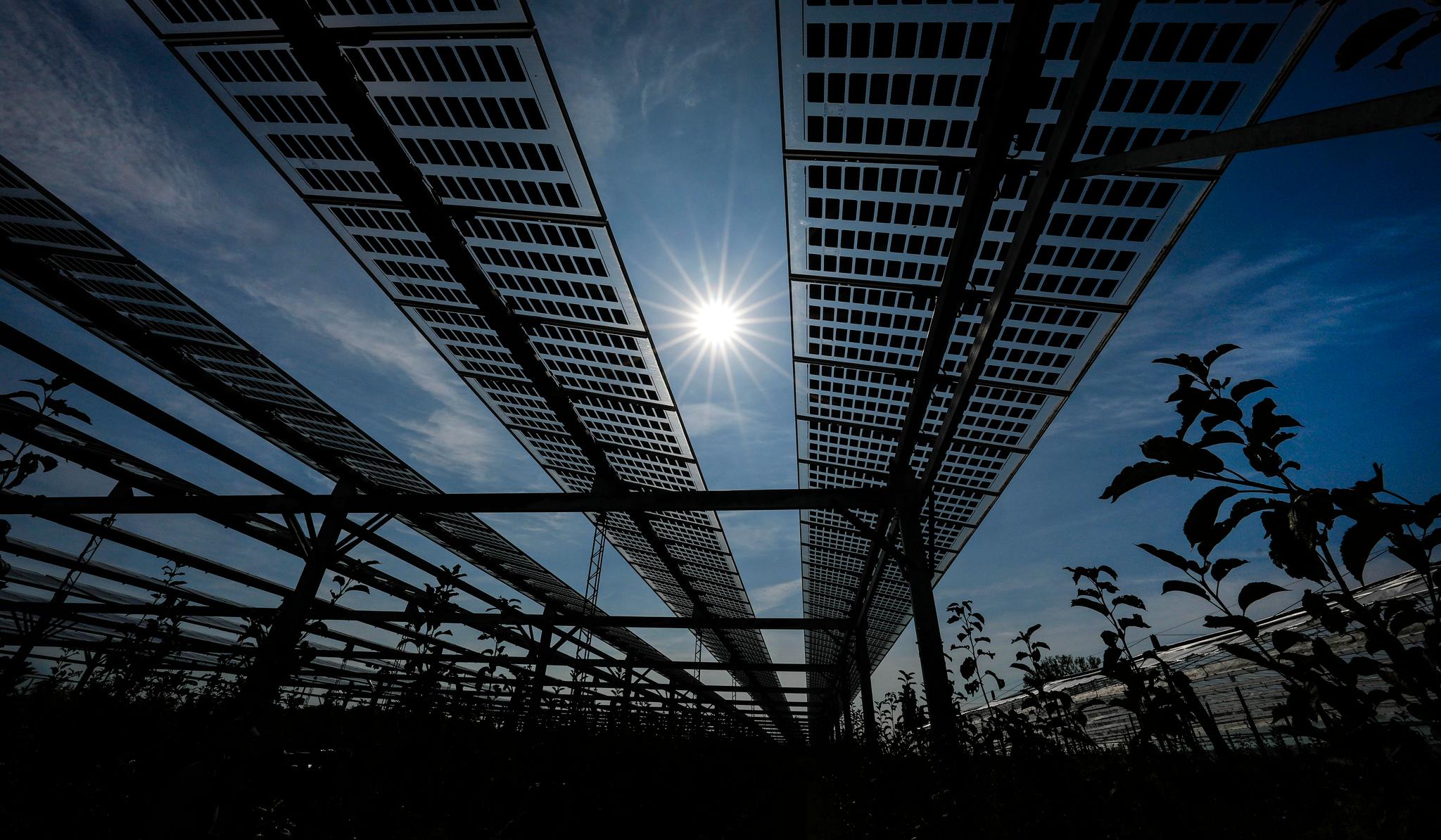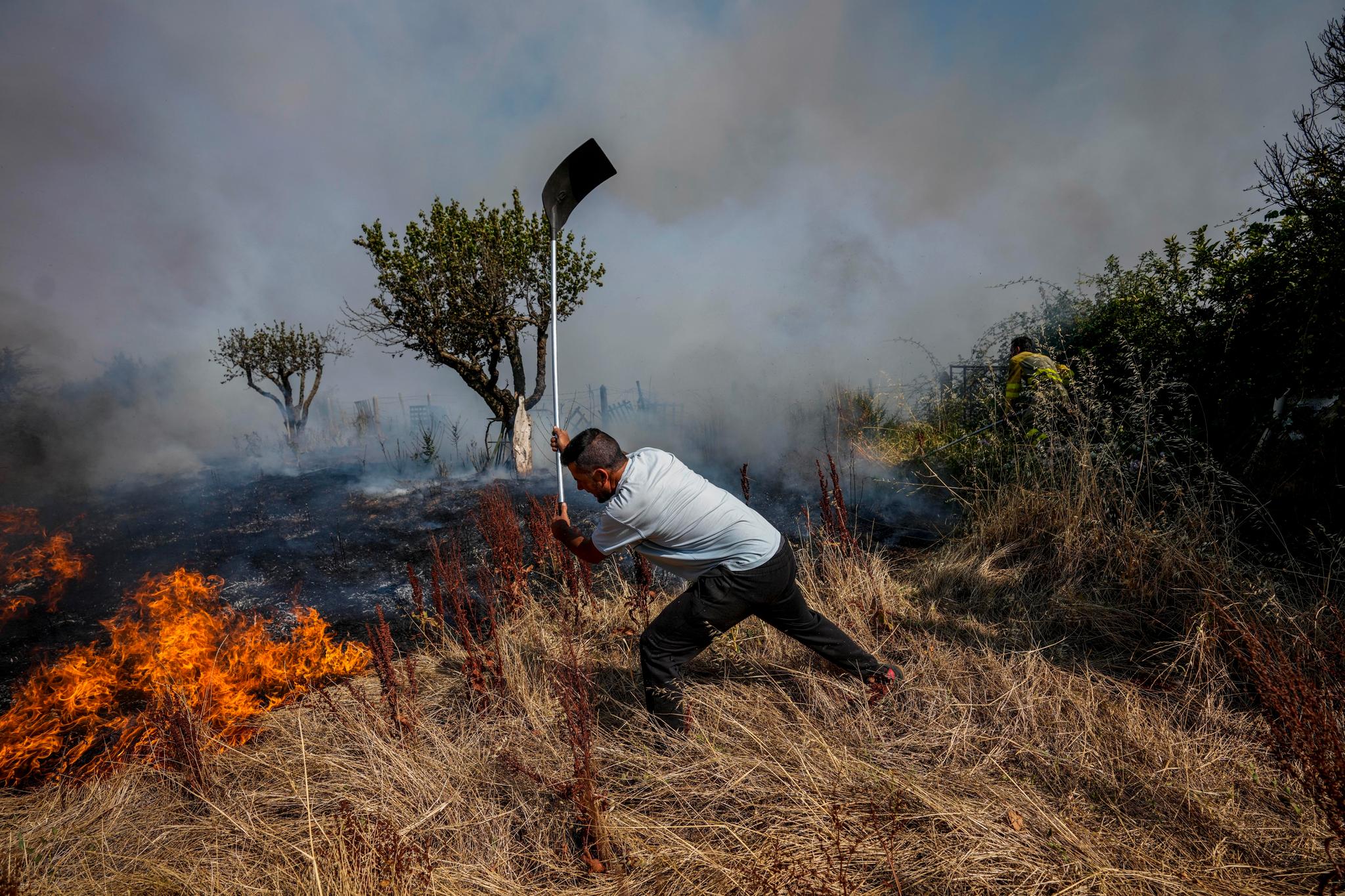Climate change is particularly evident in countries like Norway, according to a new report. But there is a small bright spot.

2022 was the second warmest year in Europe on record. The temperature is rising faster than any other continent.
This has many consequences, according to the findings of the annual report.European climate condition». It was developed by the European Union’s climate monitoring service “Copernicus Climate Change Service”. In short: extremes are becoming more frequent. From shrinking ice, to new weather patterns and ocean currents, to more droughts and torrential rains.
Climate change is most visible in Europe. Norway is distinguished in several ways. It has a simple explanation.
is increasing more in the world
The further north on the globe, the faster the temperature rises. Harald Scheberg says that Svalbard is actually the place in the world where it gets hotter than others. Senior researcher at the Institute of Meteorology.
– We usually say that the Arctic is warming two or three times faster than the average in the rest of the world. He says Svalbard is heating up about three to four times faster.
Svalbard experienced the hottest summer last year. In some places the temperature was 2.5 degrees above normal.
Norway is heading towards a climate similar to what happened in the south. The ability of Norwegian farmers to grow corn and produce wine is novel. At the same time, many countries in southern Europe are experiencing heat waves, lack of precipitation and severe drought. The researcher explains that it is affecting Norway in a way we have not seen before.

new score
Climate change manifests itself differently in cities and regions. Areas with mountains are naturally more prone to landslides. Large amounts of precipitation can occur in cities and increase flood risks, says Schiberg.
You can also see changes within grocery stores. Norway buys a lot of food from southern Europe. When both soil and rivers dry up, crops decline. This again affects our food imports, Scheberg explains.
– This has led to a shortage of more vegetables in the stores recently. We haven’t seen that before.
In addition to intense and prolonged heat waves, Europe will set several records in 2022:
- In Greenland, glaciers have never melted before.
- Antarctic sea ice was smaller than ever.
- Carbon dioxide emissions from fires in the summer months were the highest in 15 years.
- Some countries have had the highest emissions in 20 years.
- The Alps experienced record ice loss from glaciers.
- The number of hours of sunshine in Europe was a record.
A small point of light
“What we see in the report shows that the research is consistent with climate models,” says Scheberg.
But even among the records, there is a small bright spot: the fact that we have more hours of sunshine than we did in Europe’s past could provide, in the long term, environmental benefits, the researcher says.
More hours of sunshine means we can produce more solar energy. And then we can reduce the use of fossil fuels.

“Organizer. Social media geek. General communicator. Bacon scholar. Proud pop culture trailblazer.”
